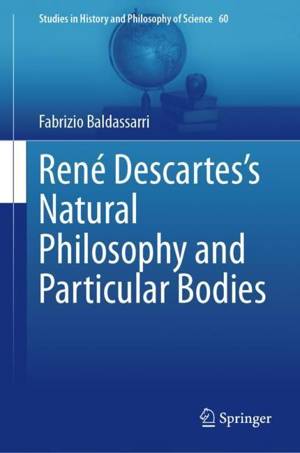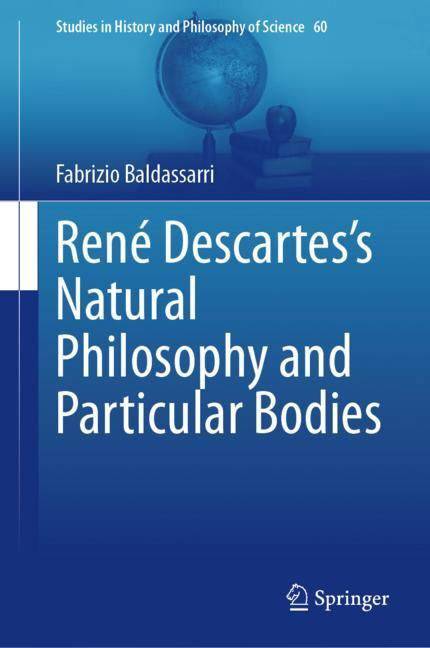
- Afhalen na 1 uur in een winkel met voorraad
- Gratis thuislevering in België vanaf € 30
- Ruim aanbod met 7 miljoen producten
- Afhalen na 1 uur in een winkel met voorraad
- Gratis thuislevering in België vanaf € 30
- Ruim aanbod met 7 miljoen producten
René Descartes's Natural Philosophy and Particular Bodies
Fabrizio BaldassarriOmschrijving
This book explores René Descartes's attempts to describe particular bodies, such as rocks, minerals, metals, plants, and animals, within the mechanistic interpretation of nature of his philosophical program. Despite his early rationalistic epistemology, Descartes's increasing attention to collections, histories, lists of qualities, and particular bodies results in a puzzling 'short history of all natural phenomena' contained in the Principles of philosophy (1644). The present book outlines the role of Descartes's observations and experimentation as he aimed to construct a universal science of nature, ultimately revealing the mechanization of nature in detail, and for curious bodies such as the Bologna Stone or the sensitive herb. What results is a theoretical natural history consistent with the mechanical principles of his philosophy, ultimately shedding new light on his attempt to produce a complete philosophy of nature.
Specificaties
Betrokkenen
- Auteur(s):
- Uitgeverij:
Inhoud
- Aantal bladzijden:
- 208
- Taal:
- Engels
- Reeks:
- Reeksnummer:
- nr. 60
Eigenschappen
- Productcode (EAN):
- 9783031486623
- Verschijningsdatum:
- 2/01/2024
- Uitvoering:
- Hardcover
- Formaat:
- Genaaid
- Afmetingen:
- 158 mm x 236 mm
- Gewicht:
- 566 g

Alleen bij Standaard Boekhandel
Beoordelingen
We publiceren alleen reviews die voldoen aan de voorwaarden voor reviews. Bekijk onze voorwaarden voor reviews.











